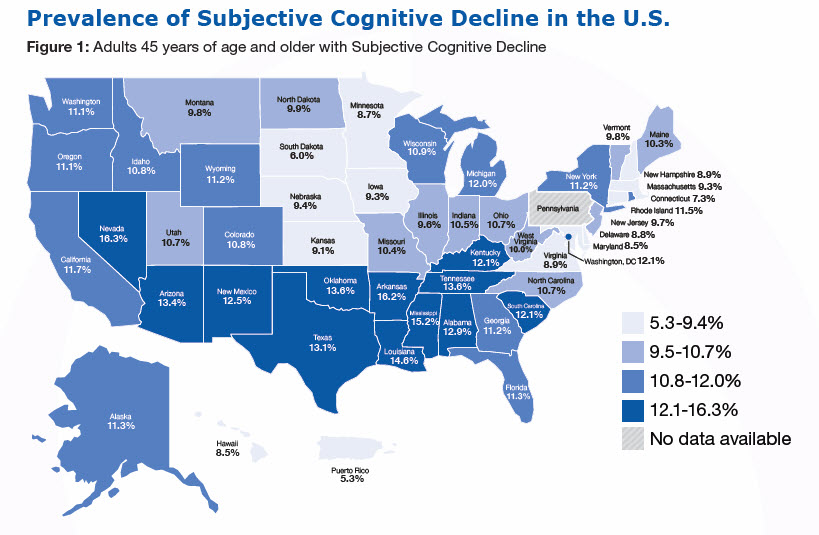Cognition and Well-being: Navigating the Spectrum of Cognitive Decline
Subjective cognitive decline is a growing public health issue. Cognition is a combination of processes in the brain that includes the ability to learn, remember, and make judgments.
When cognition is impaired, it can have a profound impact on an individual’s overall health and well-being.
Cognitive decline can range from mild cognitive impairment to dementia, a form of decline in abilities severe enough to interfere with daily life.
Cognition is defined as “mental action or process of acquiring knowledge and understanding -through thought, experience, and the senses.”
Some cognitive decline can occur as adults age, but frequently forgetting how to perform routine actions can affect a individual’s ability to function independently.
Subjective Cognitive Decline (SCD) is the self-reported experience of worsening or more frequent confusion or memory loss.
It is a form of cognitive impairment and sometimes one of the early symptoms of Alzheimer’s disease and other dementias, and can be measured in clinical trials.
In its briefing document the CDC (Centre for Disease Control) describes Subjective Cognitive Decline as “a Public Health Issue”.
